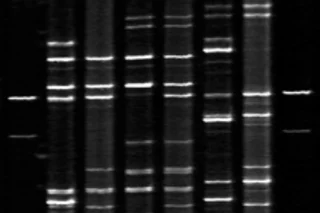There's your chronological age, the number that creeps depressingly upward with each passing birthday, and then there's your biological age, associated with the condition of your body. In a study this week in Nature Genetics, a British team discovered a link between a particular genetic variation and people being several years older in their biological age. Says study leader Nilesh Samani:
"What we studied are structures called telomeres which are parts of one's chromosomes. Individuals are born with telomeres of certain length and in many cells telomeres shorten as the cells divide and age" [Press Association]
. Some people, however, are born with shorter telomeres to begin with, which sets them up to age faster, biologically speaking, and could put them at greater risk for age-related diseases. Samani's team studied 500,000 genetic variations, and they keyed on one near a gene called TERC.
In a study of nearly 3,000 people, ...














